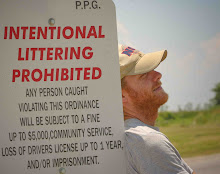One of the ways that conservatives managed to disable affirmative action programs and scale back civil rights advances that were making a real (albeit somewhat lacking) difference in dismantling racial inequality during the 1960s and 1970s was by using the language of colorblindness. Conservatives say;
‘Giving jobs or admissions slots over to someone because of their race is racial discrimination.’
‘The state should never take someone’s race into account. That’s how we got into this mess in the first place.’
These were things that used to be said by anti-racists activists who were struggling to dismantle the power of white supremacy. Few antiracists would be so naïve as to argue these same points now. But the right has adopted colorblindness with a passion. In fact, they have adopted much of the language used by social justice movements in the past, and they have done it to support a whole array of state policies and practices that have had the effect of stalling progress and even retrenching the power of white supremacy and socioeconomic inequality.
One particularly pertinent example of this is on display in the post-Katrina reconstruction of New Orleans. On Monday, August 21st HUD Secretary Alphonso Jackson visited the city to show off the New Fischer homes and apartments, a HOPE VI redevelopment which he hopes will become a model for the rest of the city’s low-income neighborhoods. Of the new project Jackson proclaimed;
"Low-income people don't deserve to live less than anyone else. Remember, we're all human being with the same sense of worth in God's eyes."
Of his department’s plans to shut down, demolish, and redevelop 5000 units of public housing in the city Jackson has stated that:
"Every family who wants to come home should have the opportunity to come back,"
Jackson has said that, “Hurricane Katrina was necessary in order to show the potential harm of these areas of poverty.”
To solve these problems HUD’s chief has lined up behind a program to, "replace the concentration of poverty with mixed-income families."
Doing so will supposedly better the lives of those who inhabited high poverty areas prior to hurricane Katrina. It all sounds logical and their intentions seem good and genuine if we take their words at face value. The discourse centers on bettering the lives of the poor, providing hope, desegregating cities, and ending public housing as we know it. In numerous personal conversations I’ve had with many well meaning liberals and some conservatives they have called public housing an urban reservation; the same as those created by the federal government to intern Native Americans (and there’s some kernel of truth to this).
Critical race theorists have for a long time asked that rather than judging a policy or law by its face value, we should look instead at outcomes. If a policy has the effect of creating racial disparities, then it is racist. If a policy has the effect of exacerbating economic hardships on the poor, then it is a punitive and regressive policy. HUD’s policy agenda over the past decade and a half has had the effect of destroying tens of thousands of units of public housing in more than 166 cities in the United States. The rational has been to “de-concentrate” poverty in our urban areas and provide better opportunities for the poor, especially highly segregated racial minorities. These opportunities have not emerged. The supposedly “mixed-income” communities that are supposed to emerge have remained elusive. Our society remains highly polarized along lines of income, wealth, and race.
So was this ever really the prime motivating force?
What if the desired outcome at the core of the agenda to delete public housing and other low-income urban programs isn’t what proponents advocate first and foremost? What if the language doesn’t line up with the reality? Consider what has actually been accomplished in the post-civil rights era of compassionate conservativism. An essential entitlement program of the federal government, public housing, is slowly being dismantled in the name of creating mixed income communities. Hundreds of thousands of poor predominantly non-white Americans have been pushed out of their homes and communities onto which upper-income housing has been built and untold profits have been made on real estate speculation. Public tax dollars have been shifted into housing and urban development programs that increasingly subsidize the rich and affluent.
Achieving these outcomes would be impossible if the Right advocated for them in a straightforward manner. As far to the right our nation has shifted since the 1970s, it is still politically unfeasible to openly talk about withdrawing the state and completely dismantling its functions that keep the heads of the poor above water. It’s also somewhat unfeasible to openly advocate greater and greater subsidies for corporations, the wealthy, and programs that unequally benefit whites.
So the language of social justice and compassion is used. The logic of this language in post-Katrina New Orleans is that we have an “opportunity” to get rid of poverty and crime by rebuilding our neighborhoods the right way. It’ll be better for everyone, especially the poor. The outcome is shaking down right now. Tens of thousands of families are locked out of public housing. If the course stays the same they’ll never be able to come home. Perhaps a hundred thousand or more are unable to return to their houses in the hardest hit sections the city. HUD’s policies are promoted with niceties and hat tipping toward a better future for everyone, but it’s the outcomes that count. So far the outcome is proving highly unequal. And this inequality is drawn sharply along lines of race, class, and certain status factors such as residing in public housing or specific neighborhoods like the Central City or 9th Ward.

No comments:
Post a Comment